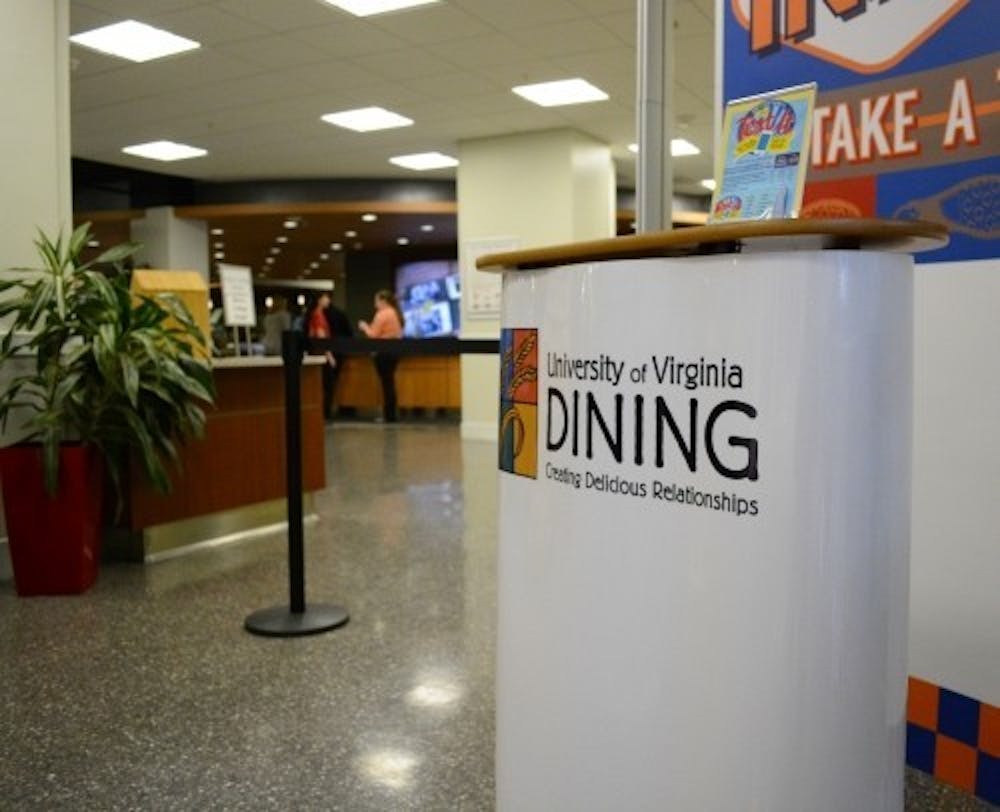While each student’s path to graduation is different, they all begin the same — as a wide-eyed, bushy-tailed first-year student. Life as a first-year follows a uniform structure — travel to classes on foot, navigate dorms with roommates and get each meal from dining halls. Yet, this seemingly simple routine is complicated due to the University’s inadequate dining options. As it stands, there are not enough alternatives for those with dietary restrictions to be sustained from dining halls alone. The health of all students must be considered — more emphasis must be placed on increased menu options, not just for those who want it, but for those who need it.
Most students need not worry about their vicinity to food options on Grounds, as the three major dining rooms — Observatory Hill, Runk and Fresh Food Company — are conveniently located near the three major residence areas. While their proximity is beneficial for students, their contents are not. U.Va. Dining states that it is “passionate about dining programs that make it easy to eat well, and about nutrition and wellness programs that create a culture of health and wellbeing.” Yet its menu rarely reflects this goal.
Students with dietary needs, in particular, bear the brunt of this food deficiency. Vegan and vegetarian options make up only 30 percent of U.Va. Dining’s menus. For vegan and vegetarian first-years who are required to buy a meal plan, eating from only one-third of a menu cannot be a sustainable way of living. And that is before factoring in an individual’s food preferences, which will only decrease that percentage further. Most importantly, reduced dietary intake from lack of proper nutrient intake can lead to serious health risks. If students do not regularly eat nutritious meals, they can become malnourished — affecting the function and recovery of every organ system in the body. U.Va. Dining’s website does address special dietary needs, but only by encouraging individuals to meet with their managers for further discussion. This should not be necessary — students already pay for dining services. They should not be responsible for crafting personalized menus in addition to that. It is imperative that the University address this lack of vegan and vegetarian options in order to ensure the health and safety of the student body. Currently, their attempts to cater to all students are half-hearted at best.
Not only dietary needs must be met but religious ones too. As is, there are no distinctions for religious diets, like Kosher and Halal options. The University’s ignorance toward religious law — in the context of food availability — is not only disrespectful but immoral. For an institution that claims to “support a collaborative, diverse community,” its current dining situation is appalling.
Restructuring U.Va. Dining’s menus is feasible. Emory University provides a diverse dining experience for all students regardless of dietary needs, offering both a vegan station with completely plant-based lunches and dinners, as well as a gluten-free station which provides food prepared in an entirely separate part of the kitchen. Students are also given Kosher and Halal options which can be located with descriptive icons found on each menu. These facets of Emory’s dining experience could translate into something as large as a gluten-free station or as small as simply adding more diet-friendly options to U.Va. Dining’s menus.
The health and wellbeing of the student body are currently at stake. The University must address the lack of sufficient menu options on Grounds and make a change. It is not an unreasonable request to live in an environment that caters to the dietary — nay, fundamental — needs of its community.
Grace Duregger is an Opinion Columnist for The Cavalier Daily. She can be reached at opinion@cavalierdaily.com.
The opinions expressed in this column are not necessarily those of The Cavalier Daily. Columns represent the views of the authors alone.







